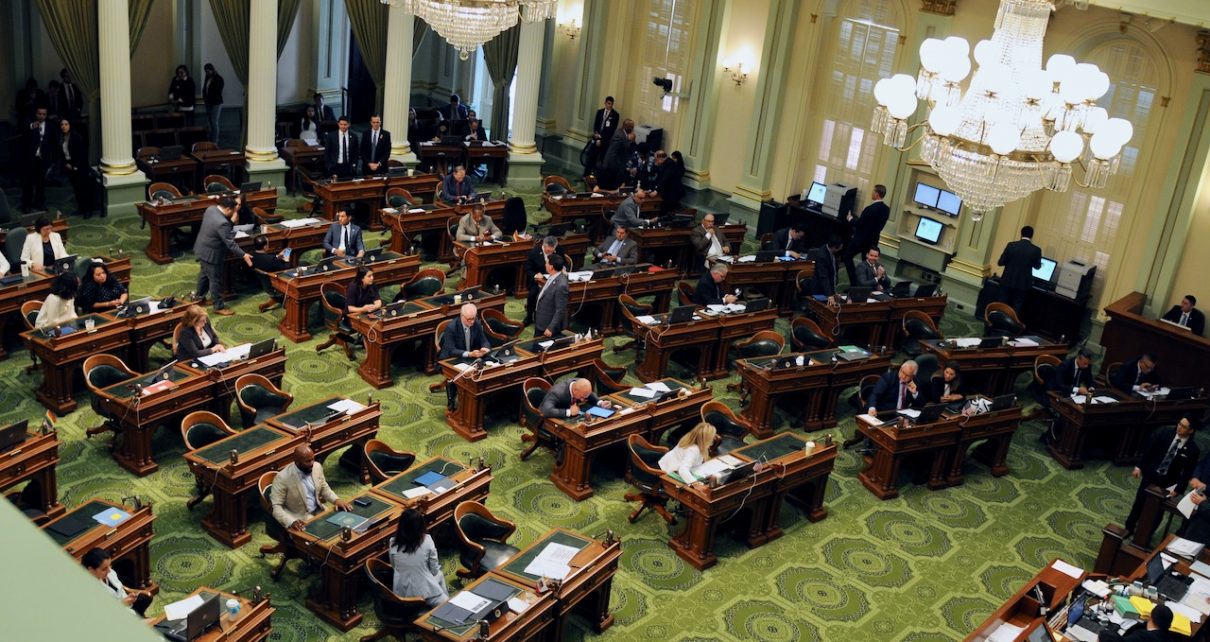
California State Assembly Chamber. (Photo: Kevin Sanders for California Globe)
Is Plagiarism Allowed in Bill Drafting?
Plagiarism is not only allowed in bill drafting, but also it is strongly required
By Chris Micheli, April 15, 2022 8:13 am
Not only is plagiarism allowed in bill drafting, but also it is strongly required. Why? For the simple reason that we want consistency in the drafting of statutes.
According to the Oxford Dictionary, “plagiarism” is defined as “the practice of taking someone else’s work or ideas and passing them off as one’s own.” Is plagiarism a crime? Plagiarism is essentially theft and fraud committed simultaneously. It is considered theft because the writer takes ideas from a source without giving proper credit to the author. It is considered fraud because the writer represents the ideas as her or his own.
Nonetheless, bill drafters often repeat the mantra that “plagiarism is allowed is bill drafting.” In fact, bill drafters encourage it so that statutory language is used throughout a state’s laws. Consistency, and clarity, are critically important aspects of bill drafting. As a result, using the same language in similar statutes serves a valuable purpose.
That is because provisions of law that are similar in substance should be similarly written and arranged. The general view is that parallel structure improves accessibility and promotes consistency. Moreover, consistent use of terminology is critical to drafting laws well. Consistency often times requires being repetitive with language, such as using the same word rather than another, similar one.
Varying statutory language is not a good approach because interpretation problems often result. As a result, consistency in statutory language is necessary. The regulated community, courts, and the general public expect words and meanings of statutes to be used consistently. Because the courts read laws in the context of other laws as well, if other laws give a certain term a different meaning, it will create interpretation problems.
Consistency also requires that different words should not be used with the same meaning. Likewise, statutes should not use the same word with different meanings. Fundamentally, maintaining consistency will help reduce ambiguity in statutory language. As a result, plagiarism is completely acceptable and, in fact, required to ensure consistency occurs in California laws.
- Legislative Intent Does Not Equate to a Mandate - April 27, 2024
- Frequently Asked Questions about State Agency Ethics Training - April 26, 2024
- Frequently Asked Questions about When Elected Officials Take Office - April 25, 2024



